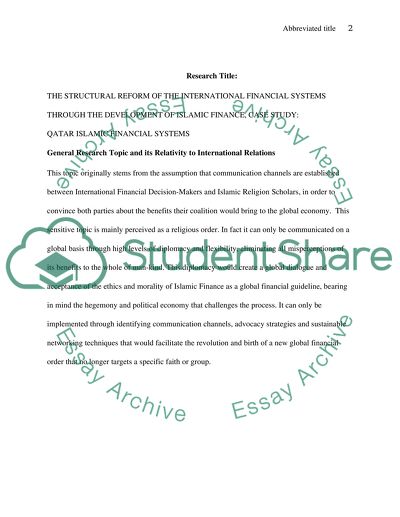Cite this document
(The Structural Reform of the International Financial Systems through Research Proposal, n.d.)
The Structural Reform of the International Financial Systems through Research Proposal. Retrieved from https://studentshare.org/finance-accounting/1567353-the-developmental-role-of-islamic-financial-systems-and-its-stability-profitability-and-sustainability-case-study-northern-sudan-islamic-financial-systems
The Structural Reform of the International Financial Systems through Research Proposal. Retrieved from https://studentshare.org/finance-accounting/1567353-the-developmental-role-of-islamic-financial-systems-and-its-stability-profitability-and-sustainability-case-study-northern-sudan-islamic-financial-systems
(The Structural Reform of the International Financial Systems through Research Proposal)
The Structural Reform of the International Financial Systems through Research Proposal. https://studentshare.org/finance-accounting/1567353-the-developmental-role-of-islamic-financial-systems-and-its-stability-profitability-and-sustainability-case-study-northern-sudan-islamic-financial-systems.
The Structural Reform of the International Financial Systems through Research Proposal. https://studentshare.org/finance-accounting/1567353-the-developmental-role-of-islamic-financial-systems-and-its-stability-profitability-and-sustainability-case-study-northern-sudan-islamic-financial-systems.
“The Structural Reform of the International Financial Systems through Research Proposal”, n.d. https://studentshare.org/finance-accounting/1567353-the-developmental-role-of-islamic-financial-systems-and-its-stability-profitability-and-sustainability-case-study-northern-sudan-islamic-financial-systems.


